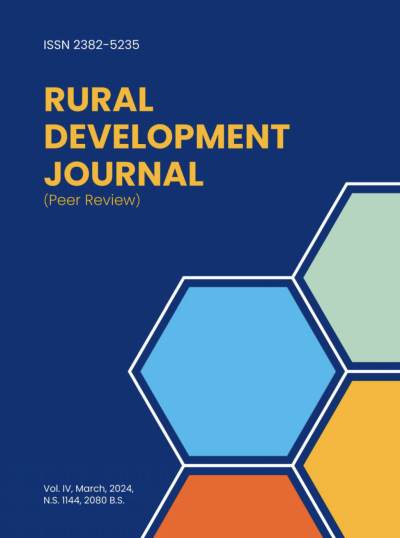Conceptual Understanding of Ethnicity in Nepal: Exploring Primordial and Constructivist Approach
DOI:
https://doi.org/10.3126/rdj.v4i1.64024Keywords:
ethnicity, primordial approach, constructivist approach, intersectionality, hybridity, power dynamics, ethnic identityAbstract
This paper critically analyzes the primordial and constructivist approaches to understanding ethnicity in Nepal and examines how intersectionality, hybridity, power dynamics, and agency shape ethnic identity construction. The study draws on diverse perspectives and scholarly literature to explore the complexities of ethnicity in Nepalese society. The findings reveal the interplay of primordial factors, such as shared ancestry and kinship, with constructivist factors, including social construction and fluidity, in shaping ethnic identity formation. The analysis also highlights the significance of intersectionality, where gender, caste, class, and ethnicity intersect, in influencing ethnic identity construction. Additionally, the study emphasizes the role of hybridity, power dynamics, and agency in shaping and contesting ethnic identities. The implications of these dynamics for marginalized ethnic communities are discussed, focusing on their challenges in challenging dominant narratives and advocating for their rights. The research contributes to a comprehensive understanding of ethnicity in Nepal and informs future research, policy considerations, and interventions related to ethnicity and identity.




